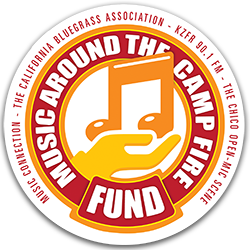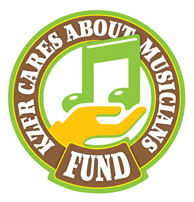But with the second shot she died
Delia's gone, one more round, Delia's gone”
Between 1925 and 1928 Library of Congress song collector Robert Winslow Gordon collected more than 20 versions of what he referred to as “Cooney Killed Delia” songs. His collecting took place on visits to his wife’s hometown in Darien, Georgia and he wrote that he traced the song to Savannah where he collected 50 pages of court records and interviewed Delia’s mother and the police detective who worked the case. Other than his letter that outlines what he had accomplished, all of his research is lost and the actual story behind the songs remained a mystery for over 70 years.
Chemistry professor and folklorist John Garst picked up the search in June, 2000. He scoured the many versions of “Delia” songs looking for clues to its origins. In one version he found the lines “Nineteen hundred, Nineteen hundred and one, Death of po’ Delia, Has jes’ now begun.”
Garst writes “I went immediately to the library to scan the year 1901 in Savannah newspapers on microfilm. Two hours later, in mid-March, 1901, I was looking at an article stating that Moses Houston would go on trial tomorrow for the murder of Delia Green last Christmas Eve.”
Delia was a 14 year old scrub girl who lived in Yamacraw, the black section of Savannah. Moses was 15. At a Christmas Eve party in the home of Delia’s employers Willie and Emma West, Moses began bragging about his relationship with Delia. His sexual bravado upset her and she cussed him out and called him a liar. He had been dissed in public and Moses’ adolescent ego - probably fueled by alcohol - got the better of him. Later that evening as the party broke up he shot her with Willie’s .38 caliber pistol that had been just lying on a table. Willie wrestled Moses to the ground and the police were called. Delia was carried to her nearby home and a doctor arrived who told the gathering newspaper reporters that she wouldn’t survive the wound. She died on Christmas morning and is buried in an unmarked grave in Savannah’s Laurel Grove Cemetery.
Moses Houston (pronounced ‘How-stun’) went on trial for murder three months later. The headlines read “Boy Charged with Murder” and it was reported that Moses was dressed in short-pants throughout the hearings. Because Georgia didn’t have a separate juvenile court system at that time the trial was focused on his age. Garst speculates that the short-pants may have been part of his attorney’s strategy to emphasize the murderer’s youth. Savannah newspapers also focused on race. Moses was referred to as “Coony” Houston in some stories. His courtroom demeanor was described as aloof, calm, and emotionless; implying that the teenager was above the proceedings. The court transcriptions however suggest to some researchers that these descriptions are just editorial projections reinforcing racial stereotypes and making the case that Yamacraw wasn’t really Savannah, and was actually home to a very different kind of irresponsible people.
The short-pants may have spared Moses from the gallows. He was convicted with the jury’s recommendation of mercy and sentenced to life in prison at hard labor. He served 13 years and was paroled by the governor. Little is known about his life after parole.
Songs appeared immediately retelling the tragic tale. One of White’s informants told him that he first learned his musical version of the tale sometime between 1901 and 1904.
Blind Willie McTell, being from Georgia and playing music as a
young teenager, would have heard some of the earliest local versions. McTell
offers the story from a more ambiguous perspective and his recording serves as
the basis for Bob Dylan’s and David Bromberg’s renditions. But it was Blind Blake’s version that reached
a larger audience thanks to popular recordings by the Kingston Trio, Burl Ives,
Pete Seeger and Johnny Cash (who recorded it at least four times and made a
video featuring Calvin Klein model Kate Moss as his Delia!). Blake’s version is told from the standpoint
of the killer.
In the course of a century of singing the story its details have shifted;
lost and irrelevant become the ages of the killer and his victim. Race is removed from the description as well
- “Coony” becomes “Cutty” or “Curtis.” By
the time the songs are recorded and appreciated by a mass commercial audience
the characters are re-imagined as adults with adult vices and motivations, and the
murder is bad but not surprising. Just
another death by jealous human hand; no outrage necessary. But the murderer sometimes tells the story
from a jail cell (when the round is a
bullet), sometimes from a bar stool (when the round is a drink). In both
cases - but not in all songs - remorse and guilt haunt him: "If I hadn't shot poor Delia, I'd have her for my wife," and "Delia's in the graveyard six feet out of sight, all the friends I ever had are gone."
Remorse and guilt should haunt us too because the song still has a place in America’s musical oeuvre, and in post-Columbine America it’s time to resurrect the truth behind “Delia:” A child killed a child. It isn’t outdated. Gun violence and murder in America is such a common everyday occurrence that it has become more bewildering than it is upsetting, except of course when a child kills a child; that still sparks outrage. Teenagers are supposed to be carrying books and iPads to school, not loaded weapons. But as the “Cooney Killed Delia” songs show, children killing children isn’t a new phenomenon. In the late 19th Century on occasion a child killed another child, just not in the sanctuary of a classroom. Unless they were wealthy most teenagers weren’t in school; they were in the fields or factories, or plying some other trade in a store front or on a street corner. They were kids operating in an adult world. But even back then when a youngster killed another youngster it sparked enough outrage to outlive the court transcripts and newspaper reports and find a place in our folklore -- where in Delia and Moses' case our collective remorse and guilt removed one important, but uncomfortable detail -- their age.
Sources: “Delia” by John
Garst (Loomis House Press 2012). “The Rose & the Briar: Death, Love and Liberty in the American Ballad” by Sean
Wilentz & Greil Marcus.
Here’s a link to a very long list of “Delia” recordings: http://www.keeponliving.at/song/delia.html












